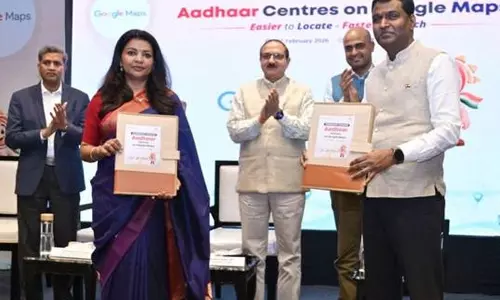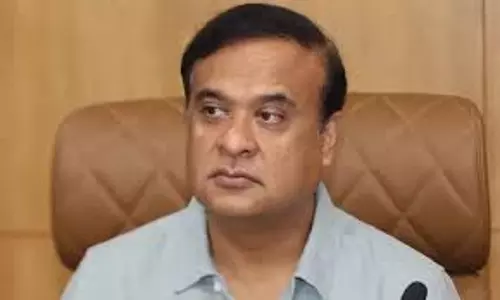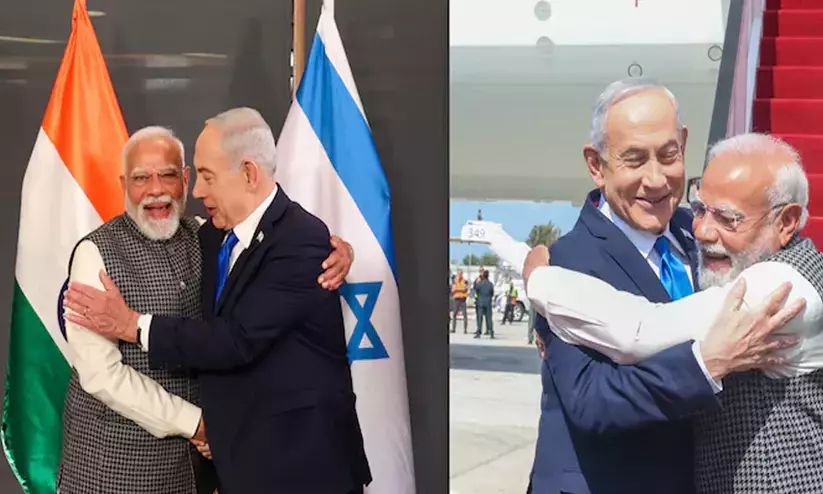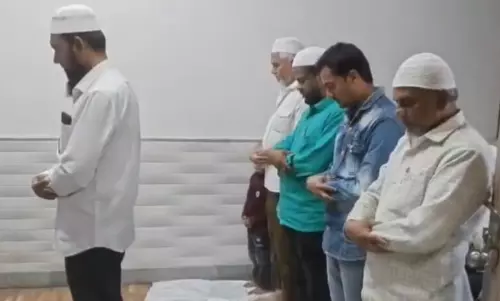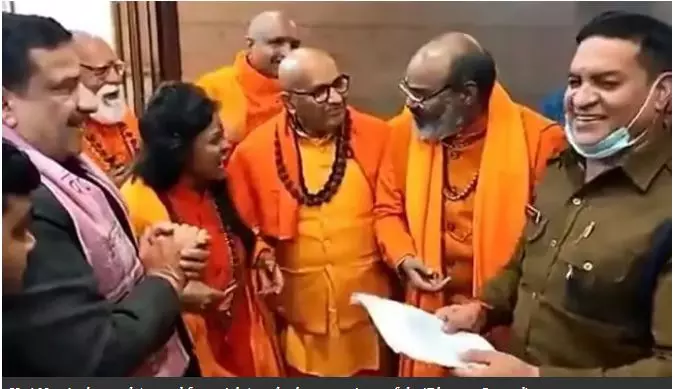
Not entertaining plea doesn't mean allowing violations: SC to UP govt on 'Dharam Sansad'
text_fieldsThe Supreme Court urged the UP government to keep track of the 'Dharam Sansad', which is scheduled to be held December 17-21 by controversial Hindu seer Yati Narasinghanand, ensuring that no hate speech is given and that no violation of law and order occurs while refusing to entertain the contempt petition against the UP government for allowing the Sansad.
The Supreme Court on Thursday declined to entertain a contempt petition against the Uttar Pradesh government for permitting the 'Dharam Sansad' event in Ghaziabad, led by controversial Hindu seer Yati Narasinghanand, who is known for his hate speech targeting Muslims, including calling for the genocide of Muslims.
A bench headed by Chief Justice of India Sanjiv Khanna, while hearing the plea filed by activist Aruna Roy and others, noted, “We are not entertaining any contempt petition; you approach the concerned authorities.” Advocate Prashant Bhushan, representing the petitioners, argued that the Uttar Pradesh authorities had failed to act against hate speeches as mandated by previous Supreme Court rulings.
The bench emphasized the need for judicial restraint in such matters, cautioning that entertaining the plea could open the floodgates to similar petitions. “The apex court will be flooded with similar petitions if we entertain this one. Approach the jurisdictional high court,” it remarked.
However, the court underscored the importance of monitoring the event to prevent any violations. Addressing Additional Solicitor General K.M. Nataraj, representing the Uttar Pradesh government, the bench instructed, “Mr Nataraj, please tell authorities to keep track, and video recording has to be kept. Just because we are not entertaining this petition does not mean there could be a violation.”
Reiterating its earlier directives on hate speech, the court reminded all officials of their responsibility to uphold the Constitution and ensure compliance with the law. “The Constitution envisages India as a secular nation,” the bench stated, highlighting its April 2022 directive for stringent action against hate speech, irrespective of religion, and the filing of criminal cases without waiting for complaints.
Bhushan argued that the Uttar Pradesh administration had failed to take suo motu action against hate speech during past events. The petitioners highlighted the Supreme Court’s previous directives issued after hate speech incidents at events organised by Narasinghanand in Haridwar and the 'Hindu Yuva Vahini' in Delhi in December 2021.




